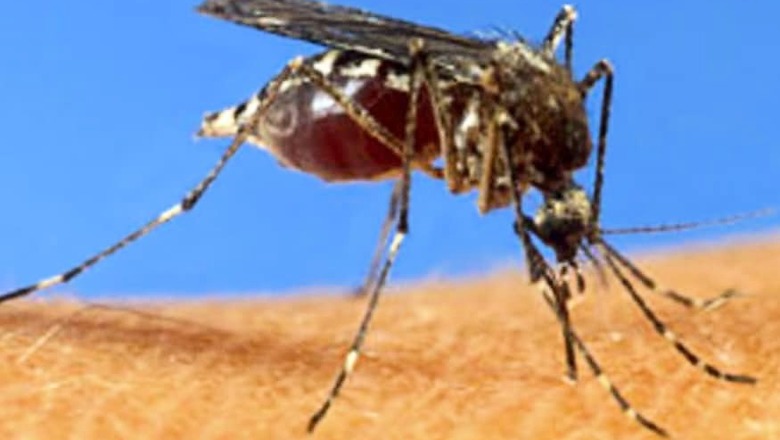
views
Pakistan's Karachi is reeling under the menace of dengue with at least 332 more people tested positive for the mosquito-borne diseases on Saturday. Dengue is spread by female mosquito Aedes aegypti that bites during early morning and in the evening before dusk. The mosquitoes spreading dengue breed in stagnant water.
According to a report by The Express Tribune, with the fresh 332 cases, dengue mosquitoes have infected a total of 7,670 people so far this year in Karachi.
The report further mentioned that according to spokesperson of per Prevention and Control Program for Dengue, at least 349 fresh cases of dengue fever were reported from Sindh in a day and of these, 332 were in Karachi.
Since dengue mosquitoes breed in stagnant water it is necessary to avoid accumulation of water in the vicinity and also keep water storage in the house clean. People should regularly clean things that store water such as aquarium, water coolers, air conditioners, flower pots, tyres, coconut shells, as mosquitoes breed in water which gets accumulated in them.
Dengue fever is most prevalent during monsoon and post-monsoon seasons. People with low immunity, elderly people, and children are more prone to be infected by dengue mosquitoes. People can prevent themselves from being bitten by dengue spreading mosquitoes by using mosquito nets, mosquito repellant, wearing full-sleeved clothes and clean the house using disinfectants regularly.
Initial symptoms of dengue include high grade fever and severe headache which is often accompanied by nausea, rash, vomiting, soaring of eyes, joint and muscles pain among others. People witnessing any of these symptoms should visit nearby hospital and get the necessary tests done. Instead of self-medication and home-remedies, people should follow the directives prescribed by the doctor.
Since dengue fever make the patient weak and the platelets count drop, people should take adequate rest and increase intake of fluids including water, juices, coconut water.













Comments
0 comment